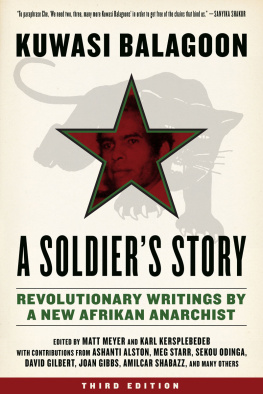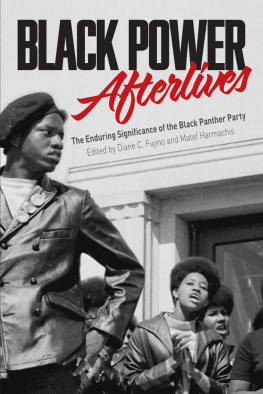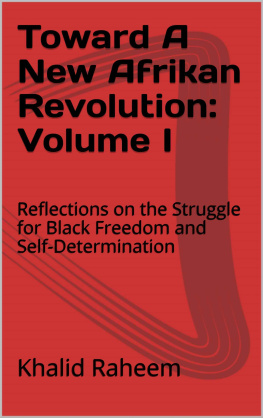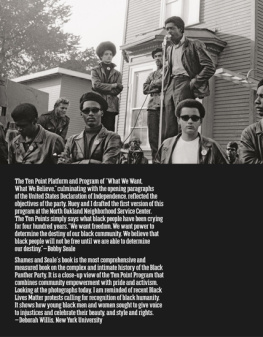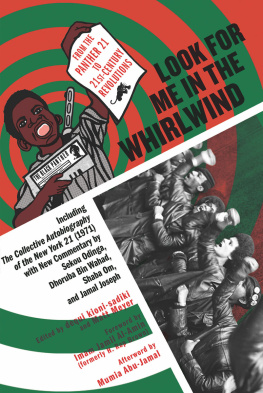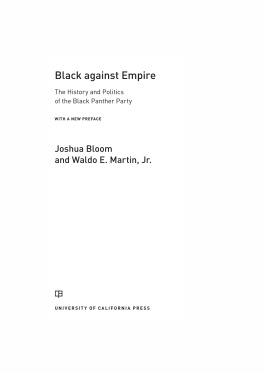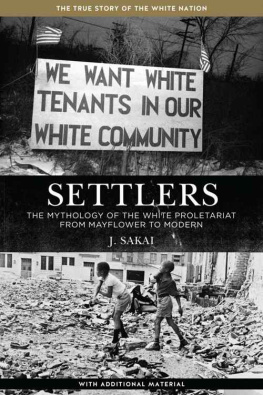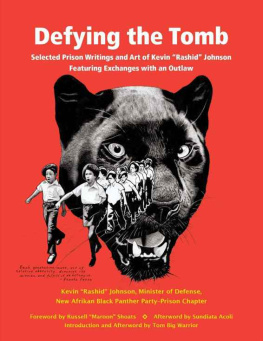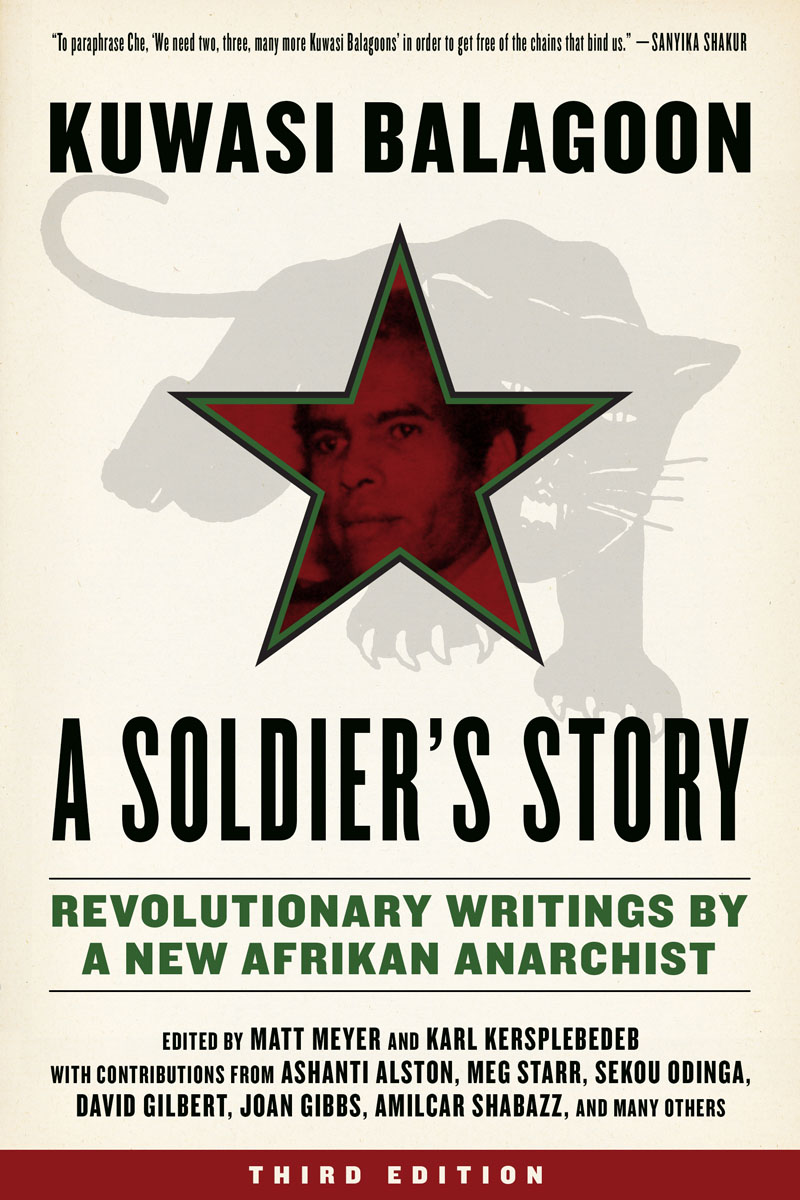
A Soldiers Story:
Revolutionary Writings by a New Afrikan Anarchist
By Kuwasi Balagoon
Edited by Matt Meyer and Karl Kersplebedeb
This edition copyright PM Press, 2019
ISBN 9781629633770
LCCN 2017942917
Kersplebedeb Publishing and Distribution
CP 63560
CCCP Van Horne
Montreal, Quebec
Canada H3W 3H8
www.kersplebedeb.com
www.leftwingbooks.net
PM Press
P.O. Box 23912
Oakland, CA 94623
www.pmpress.org
Cover Design by John Yates
Printed in the USA by the Employee Owners of
Thomson-Shore in Dexter, Michigan
www.thomsonshore.com
Table of Contents

Introduction to 2019 Edition
Close to twenty years after the publication of the first edition of this collection of writings by Kuwasi Balagoon, his light and legacy shine brighter than ever. The project to publish a new edition of A Soldiers Story was born out of expedience: the many printings of the previous editions were running out, and over the course of time we accumulated some new writings and much new commentary about this freedom fighter so defiant of the state and all forms of oppressionand so defying of easy definition and labeling. Even the word anarchist which graces the subtitle of this book can in some circles be controversial: Kuwasi was an active revolutionary nationalist whose love for his people (and all people) was a central element of his being, as was his hatred of authoritarian structures and styles. This new collection, then, following the course of the previous collections, seeks to deepen our understanding of the nuances that made up the life and thought of Kuwasi Balagoonand, in so doing, to help us prepare for the nuances so needed in forging new fightback movements of resistance and revolution.
In the course of preparing this edition of A Soldiers Story, the editors received invaluable assistance from former comrades of Kuwasis, some of whom still had in their possession writings by Kuwasi that had never been published or widely circulated. The status of these writings is unclear; we do not know if Kuwasi considered them complete or if they were drafts he would have wanted to return to. In at least one case, given that the document ends abruptly, it is clear that his intention was to write more. We present them all here, with little editing, to present as broad and wide a scope of Kuwasis contributions to radicals who hold him in deep esteem, and to the many who are just learning about this too often overlooked and complex revolutionary. Some of what is included here are new reflections from those closest to him or those influenced by him who in some way help carry on his work. Surely Kuwasi would have rejoiced at some of the interpersonal openness not quite acceptable in his day; surely he would have spent most of his time working to free all political prisonersincluding his still imprisoned New York Panther 21 codefendant Sundiata Acoliand to rid the world of all injustice. If we are to remain true to his spirit, we would do well to redouble our efforts along these very lines.
In a sense, this book is the result of almost twenty years work, as it was the very end of the twentieth century when comrades first started assembling some of these texts for what was then imagined would be a pamphlet of maybe sixty or seventy pages, building on work that had been done previously by the New Jersey chapter of the Anarchist Black Cross Federation. Besides those listed in the contributors section of this volume, we would like to thank those who were involved in Solidarity, a short-lived Montreal-based publishing collective, Prison News Service, and the Arm the Spirit collective based in Toronto (not to be confused with the prisoner newspaper of the same name) for the contributions to and work done on that first edition. Also, much thanks goes to J. Sakai, without whose guidance and encouragement that first edition would have never happened. For this most recent edition, we also thank the comrades from Freedom Archives, and Mary Patten and the Madame Binh Graphics Collective Archives, for their assistance in providing images and documents for inclusion in this volume.
Introduction to the First Edition
Solidarity, Montreal 2001
This is a collection of writings by Kuwasi Balagoon, a man who many anarchists, nationalists, and anti-imperialists may have heard of in passing, but about whom very little has been made broadly available. As you read on, this state of affairs may perplex or even anger you, for certainly what we have here are important and eloquent words by a man who devoted his life to the cause of freedomfreedom from colonialism and national oppression for New Afrika and freedom from the mental shackles we all wear around our minds.
A staunch advocate of New Afrikan liberation and the eradication of capitalism, Balagoon was also an anarchist and a participant in armed struggle. Serving a stint in the U.S. army in Germany, he and other Black GIs formed a clandestine direct action group called De Legislators, which set out to punish racist soldiers with beatings or worse. Upon his return to North America he got involved with the Black Panther Party for Self-Defense. Balagoon was one of the Panther 21, whom the government attempted (unsuccessfully) to frame in 1969. Many of his earliest writings can be found in the collective autobiography of the Panther 21, Look for Me in the Whirlwind. As the Black Panther Party disintegrated due to both outside pressure from the police and FBI and internal contradictions between different personalities and political lines, Balagoon joined that faction that became the Black Liberation Army, an important formation that engaged in armed confrontation with the state, breaking comrades out of prison, attacking the police, and carrying out expropriations (aka robberies) of capitalists.
Throughout his political journey, Balagoon remained a critical observer, often committing his thoughts and ideas to paper. Luckily, we have been able to assemble at least a portion of his writings in this booklet. Our goal in publishing this is not so much to tell people about an unknown superhero or prophet of revolutionthere are too many of those already. We have no doubt that Balagoon had his faults and made errors just like the rest of us, and indeed we are in no way claiming to agree with each and every one of his ideas. Yet it is important that these words be published together, at long last, not only as a tribute to someone who provides a good example of what a freethinking and uncompromising revolutionary can be but also for our own sake. As revolutionaries there is a lot we can learn from Balagoons words, as well as from his deeds. While hopefully keeping our own critical sensehow else would he have wanted it?there is much to be found in his observations, strategies, and ideas that should be taken seriously and discussed by those who fight for a better day now, almost fifteen years after his death.

B.L.A.
Albert Nuh Washington, March 14, 1986
Black
is a political condition,
a state of oppression and consciousness
a nation seeking to become,

